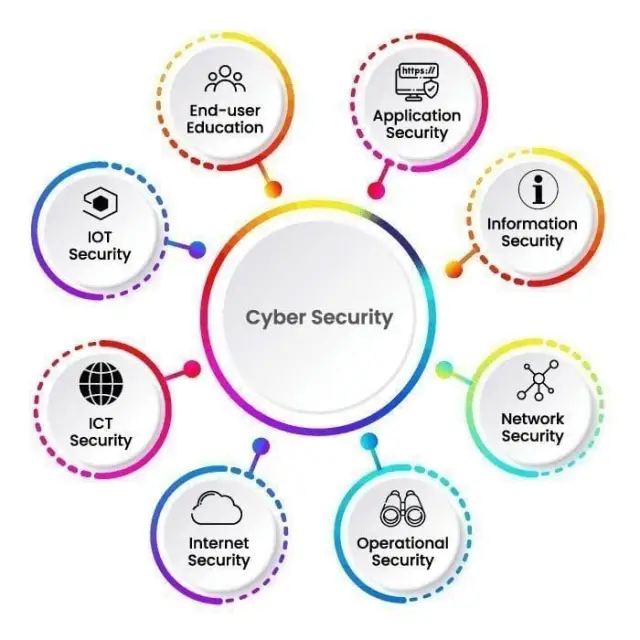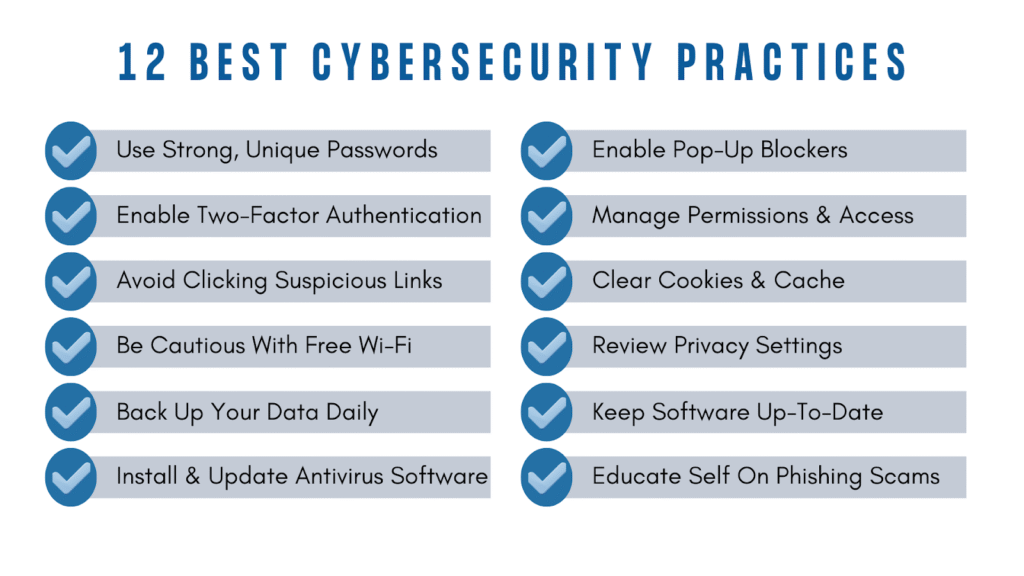
Can You Get a Job with Google Cybersecurity Certificate? 2025 Update
Can You Get a Job with Google Cybersecurity Certificate? 2025 Update
The short answer is yes, the Google Cybersecurity Certificate can help you get hired, but not on its own. Recruiters don’t hire certificates; they hire evidence. When managers screen for entry-level cybersecurity talent, they look for three things: baseline knowledge, demonstrable skills, and fit for an operational environment (communication, documentation, shift readiness, and process discipline).
A certificate is a signal that you’ve covered fundamentals. What tips decisions is proof that you can apply those fundamentals to real alerts, tickets, logs, and incidents. In practice, that means showing a small but credible body of work: correctly triaged SIEM alerts, clean incident notes, a simple risk register you maintained, a hardened Linux host with documented steps, or a short write-up explaining why an event was benign vs. malicious.
Think of the certificate as a door-opener. It earns attention in ATS and on LinkedIn, but interviews usually go to candidates who back it with hands-on artifacts (labs, playbooks, queries, detection rules) and a clear story of how they learn, document, and escalate. Do that, and the certificate becomes a real asset rather than a line on a resume.

Start a Life-Changing Career in Cybersecurity Today
What the Google Cybersecurity Certificate Really Teaches (and Doesn’t)
The Google Cybersecurity Professional Certificate is designed to give learners a strong foundation in core security concepts without requiring prior IT experience. The program, hosted on Coursera, spans eight courses that cover risk management, network security, Linux, SQL, Python for automation, and incident detection and response. For career changers, this makes the Google Cybersecurity course one of the most accessible entry points into the field.
At its best, the program equips you with practical, hands-on skills. Learners spend time working in labs, running queries, automating small tasks, and simulating real-world SOC (Security Operations Center) responsibilities. These exercises go beyond theory, which is why the program has become popular among those asking, “Can you get a job with Google Cybersecurity Certificate?”
But here’s the catch: while the content is solid, it remains introductory by design. It doesn’t replace a bachelor’s degree or higher-tier certifications like CISSP, nor does it provide the depth of a six-month bootcamp. For example, the certificate shows you how to query logs with SQL, but it won’t necessarily prepare you to design enterprise-scale detection rules. Similarly, it covers basic incident response but stops short of advanced forensics.
When learners ask, “Is Google Cybersecurity Certificate worth it?” the honest answer is: it depends on your goals. If you’re aiming for an entry-level SOC analyst, information security analyst, or IT support role with a security focus, the certificate is a meaningful first step. If you’re chasing mid-senior security engineering positions, you’ll need to stack this credential with others, and with tangible projects, to stay competitive.
The program also sparks interest around affordability. Many people look up Google Cybersecurity Certification cost (typically under $300 if completed in a few months) or search whether there’s a Google Cybersecurity certification free option. While Google does occasionally offer financial aid on Coursera, and some learners access it at no cost through scholarships, most pay the subscription fee.
So the better question might be: “Can you get a job with Google Cybersecurity Certificate for free?” Technically, yes, if you receive aid or finish during a free trial, but the real investment isn’t just money, it’s the time you spend building labs, notes, and proof of skill.
In short, the certificate teaches you the language of cybersecurity, the workflows of entry-level analysts, and the confidence to begin applying for roles. What it doesn’t teach is depth in advanced security engineering or long-term specialization; that part is on you.
RELATED: Can You Get a Job with Google Cybersecurity Certificate? Find Out How
How Employers View the Google Cybersecurity Certification
One of the biggest questions career changers ask is, “Can you get a job with Google Cybersecurity Certificate?” The answer depends less on the certificate itself and more on how you present it. Employers don’t hire certificates, they hire people who can prove skills and readiness in real-world situations.
When hiring managers and recruiters scan résumés, the Google Cybersecurity Professional Certificate acts as a signal. It tells them you’ve taken initiative, studied recognized frameworks, and completed a structured program backed by Google. This matters for applicant tracking systems (ATS) because the keyword Google Cybersecurity certification often helps résumés pass the first screening stage.
However, hiring managers don’t stop at the credential. They look for evidence of applied knowledge: lab projects, GitHub repositories, simulated incident reports, or volunteer security audits. That’s why the best way to leverage the certificate is to treat it as a door opener, not the endgame. If you can link coursework directly to hands-on examples, say, showing how you wrote an SQL query to detect unusual logins, you stand out.
Another layer employers consider is cost versus commitment. Many know that financial aid makes the Google Cybersecurity certification free for some learners or that others complete it during a Coursera free trial. This doesn’t devalue the certificate. In fact, many recruiters see completing it quickly as evidence of discipline. But from their perspective, the Google Cybersecurity Certification cost is less relevant than whether you can demonstrate the outcomes.
So is the Google Cybersecurity Certificate worth it in the eyes of employers? For entry-level roles, yes, it shows you’re serious about transitioning into cybersecurity and willing to complete structured learning. But to convert that into a job offer, you’ll need to add real-world validation: mock incident reports, SOC shadowing, Capture the Flag (CTF) challenges, or even pro bono work securing small businesses.
In essence, the certificate gets you past the first filter. Your proof of applied skills is what gets you hired.
READ MORE: Cybersecurity Internship Technical Interview Questions
Roles You Can Access with the Google Cybersecurity Certificate

For many learners, the biggest motivation behind enrolling in the Google Cybersecurity Professional Certificate is career mobility. The program promises to prepare you for “entry-level cybersecurity roles,” but what does that look like in the real market?
The most accessible positions include SOC Analyst (Tier 1), IT Support with a Security Focus, Information Security Analyst (Junior Level), and Risk or Compliance Support roles. These are jobs where employers expect candidates to understand basic concepts, like detecting phishing attempts, monitoring logs, or following incident response playbooks, rather than designing complex security architecture.
So, “Can you get a job with Google Cybersecurity Certificate?” The answer is: yes, but at the ground floor. Employers typically use this credential to validate that you can handle repetitive but critical SOC tasks such as triaging alerts, documenting incidents, and escalating issues. If you’re strategic, you can use these roles as a springboard toward advanced paths like cloud security, penetration testing, or governance and risk compliance.
Affordability often enters the conversation too. Some learners manage to access the Google Cybersecurity certification free through scholarships or trials, while others pay the Google Cybersecurity Certification cost (usually less than one month of an entry-level analyst’s salary). Either way, the ROI is clear: the certificate can accelerate access to jobs that pay anywhere between $55,000 to $75,000 annually in the U.S. and even higher if you pivot into specialized domains later.
Another reality: the certificate alone will not guarantee placement. Job listings rarely read “must have Google Cybersecurity Certificate.” Instead, they ask for demonstrable skills in SIEM tools, scripting, risk assessment, and communication. This is why the program’s lab-based projects, combined with personal initiatives like GitHub repositories or Capture-the-Flag competitions, make the difference.
When learners ask, “Can you get a job with Google Cybersecurity Certificate for free?” they’re usually weighing cost versus opportunity. The more important framing is this: what matters isn’t how much you paid for the credential, but how you leveraged it to create a portfolio of proof.
In sum, the certificate positions you for entry-level roles and helps you bypass “experience barriers,” but advancement depends on how you layer it with projects, internships, or additional training.
SEE: What Is Third-Party Vendor Risk Management (TPRM)? Complete Guide
Limitations and Criticisms of the Google Cybersecurity Certificate
For all its strengths, the Google Cybersecurity Professional Certificate is not without limits. Understanding these shortcomings helps you decide whether it fits into your long-term career strategy.
First, the program is introductory by design. It doesn’t claim to make you a penetration tester, cloud security engineer, or compliance lead. Instead, it provides a baseline, knowledge of network defense, SQL, Linux, and incident response. Learners expecting mastery or mid-level readiness often leave disappointed. That’s why it’s best treated as a launchpad rather than a final credential.
Second, critics point out the market oversaturation risk. With thousands completing the course worldwide, simply listing the Google Cybersecurity certification on a résumé no longer makes you unique. Hiring managers increasingly expect candidates to apply what they’ve learned through labs, GitHub projects, internships, or volunteer experiences. Without these, the certificate can feel like a box checked rather than proof of capability.
Third, while Coursera offers financial aid, some learners still question the Google Cybersecurity Certification cost relative to its depth. Paying around $300 for a few months of coursework is affordable compared to a university degree, but it may not deliver the same weight as industry-recognized certifications like CompTIA Security+. This tension often leads to debates over whether “Is Google Cybersecurity Certificate worth it?” The consensus: yes for entry-level credibility, but insufficient alone for long-term advancement.
Fourth, the certificate doesn’t fully address local job market nuances. For instance, in Africa or Asia, some employers may prioritize vendor-specific certifications (like AWS Security or Cisco’s CCNA) over a general Google-backed credential. This makes it essential to pair the certificate with regionally relevant training or projects.
While some people access a Google Cybersecurity certification free through scholarships, the reality is that the program still demands a time investment of 150–200 hours. Skimming through won’t equip you for the job market. The true value comes from committing to the labs, documenting your work, and building a portfolio alongside the course.
In short, the Google program gives you a strong foundation but not specialization. To stand out, you’ll need to treat it as the first step in a longer learning and career journey.
ALSO: Accounting vs Cybersecurity: Everything You Need to Know
How to Maximize the Certificate’s Value

Completing the Google Cybersecurity Professional Certificate is just the beginning. To turn it into a career asset, you need to go beyond the coursework and transform what you’ve learned into visible, demonstrable career capital.
1. Build a Portfolio Around the Labs
Every hands-on lab you complete, whether it’s writing an SQL query, configuring Linux permissions, or responding to a simulated incident, can be documented and polished into a portfolio piece. Employers want proof of problem-solving, not just a certificate badge. Publishing your lab notes or GitHub repositories helps you stand out from the thousands of others who also list Google Cybersecurity certification on LinkedIn.
2. Leverage Scholarships and Free Access Strategically
If you accessed the program through a scholarship or trial, highlight that you earned the Google Cybersecurity certification free as part of your commitment to reskilling. Cost-saving doesn’t reduce the value, what matters is that you applied yourself and completed it. Some learners even ask, “Can you get a job with Google Cybersecurity Certificate for free?” The answer is yes, provided you can show practical output alongside the credential.
3. Combine with Complementary Certifications
The Google Cybersecurity course works best when stacked with other entry-level certifications like CompTIA Security+ or ITIL. This signals to employers that you’ve moved from broad fundamentals into targeted skill areas. It also addresses concerns about whether the Google Cybersecurity Certification cost is worth it, because you show commitment to continuous growth rather than stopping at one credential.
4. Network and Apply Early
Don’t wait until after completing the program to job-hunt. Start applying for internships, IT support roles, or SOC trainee positions as you progress. Many employers care more about your initiative and willingness to learn than whether you’ve finished every module. Including “in progress” on your résumé can already start conversations.
5. Translate Coursework into Business Value
When asked in interviews, “Is Google Cybersecurity Certificate worth it?” the most compelling response is to show how what you learned solves business problems. For example:
- “I can now query logs to detect suspicious login attempts.”
- “I learned how to configure Linux security settings, which reduces unauthorized access risks.”
- “I can explain threats to non-technical stakeholders clearly, improving awareness.”
Framing your skills in business terms makes you more hireable.
6. Stay Visible and Current
Finally, share your journey on LinkedIn or professional communities. Post about labs you’ve completed, tools you’ve explored, or challenges you’ve solved. This keeps your name in circulation, connects you to recruiters, and turns your certificate into part of a narrative of growth rather than a static credential.
By following these strategies, the Google Cybersecurity certification becomes more than a digital badge; it becomes a springboard to interviews, opportunities, and a sustainable career in cybersecurity.
Final Verdict
So, after weighing its strengths, limits, and career impact, is the Google Cybersecurity Certificate worth it? For career changers, the answer is yes, with the right expectations.
The Google Cybersecurity Professional Certificate delivers a structured introduction to cybersecurity. It helps beginners move from zero to employable skills, covering practical areas like Linux, SQL, SIEM tools, and incident response. Its biggest strength is accessibility: learners worldwide can start, often with financial aid or a Google Cybersecurity certification free trial, making it one of the most affordable entry-level pathways compared to degrees or vendor-specific training.
But the certificate is not a golden ticket. Employers won’t hire you just for the credential. They’ll hire you for the proof of applied skills, portfolios, lab projects, internships, or volunteer work. This makes the certificate a door opener, not the final destination. It gets you through ATS filters, signals seriousness to recruiters, and positions you for entry-level roles like SOC Analyst or Junior Security Analyst. Beyond that, your growth depends on how you build upon it.
The Google Cybersecurity Certification cost is modest compared to its potential ROI. If you use the program strategically, pairing it with complementary certifications, documenting your projects, and networking, the payoff can be significant. Many career changers have landed roles paying $55,000–$75,000 per year as a direct result of completing the course, especially when they presented their skills effectively.
So, can you get a job with Google Cybersecurity Certificate? Absolutely. But the certificate alone won’t make you stand out. It’s what you do with it, how you showcase your skills, expand your learning, and tell your professional story, that truly makes the difference.
FAQ
How much can you make with a Google Cybersecurity Certificate?
With the Google Cybersecurity Professional Certificate, most learners qualify for entry-level roles such as Security Operations Center (SOC) Analyst, Information Security Analyst (junior), or IT Security Support. In the U.S., these roles typically pay $55,000 to $75,000 per year, depending on location, industry, and company size. With experience and additional certifications, many professionals progress to mid-level roles, earning $90,000 or more annually.
How much is a Google Cybersecurity Professional Certificate?
The program is hosted on Coursera and generally costs about $39 to $49 per month, depending on your subscription. Since most learners finish within 4–6 months, the total cost is usually $200 to $300. Coursera also offers financial aid and free trial options, which means some learners can access the program at little to no cost.
Who is the highest paid in cybersecurity?
The highest-paid professionals in cybersecurity are typically those in executive or highly specialized technical roles. For example, a Chief Information Security Officer (CISO) can earn well over $200,000 annually at large corporations.
Specialized roles such as Cloud Security Architect, Penetration Tester (Red Team Lead), and Cybersecurity Consultant for Fortune 500 companies also command six-figure salaries, sometimes surpassing $250,000 depending on expertise and demand.
What is a SOC Analyst?
A SOC Analyst (Security Operations Center Analyst) is an entry-level to mid-level cybersecurity professional responsible for monitoring and responding to security alerts. Their duties include:
– Tracking suspicious activity in real time using SIEM tools
– Investigating alerts such as phishing attempts or unauthorized access
– Escalating incidents to senior analysts or engineers
– Documenting threats and suggesting preventive measures
For many learners, the SOC Analyst role is the most common first job after completing the Google Cybersecurity Certificate, making it an excellent starting point for a long-term career in cybersecurity.
